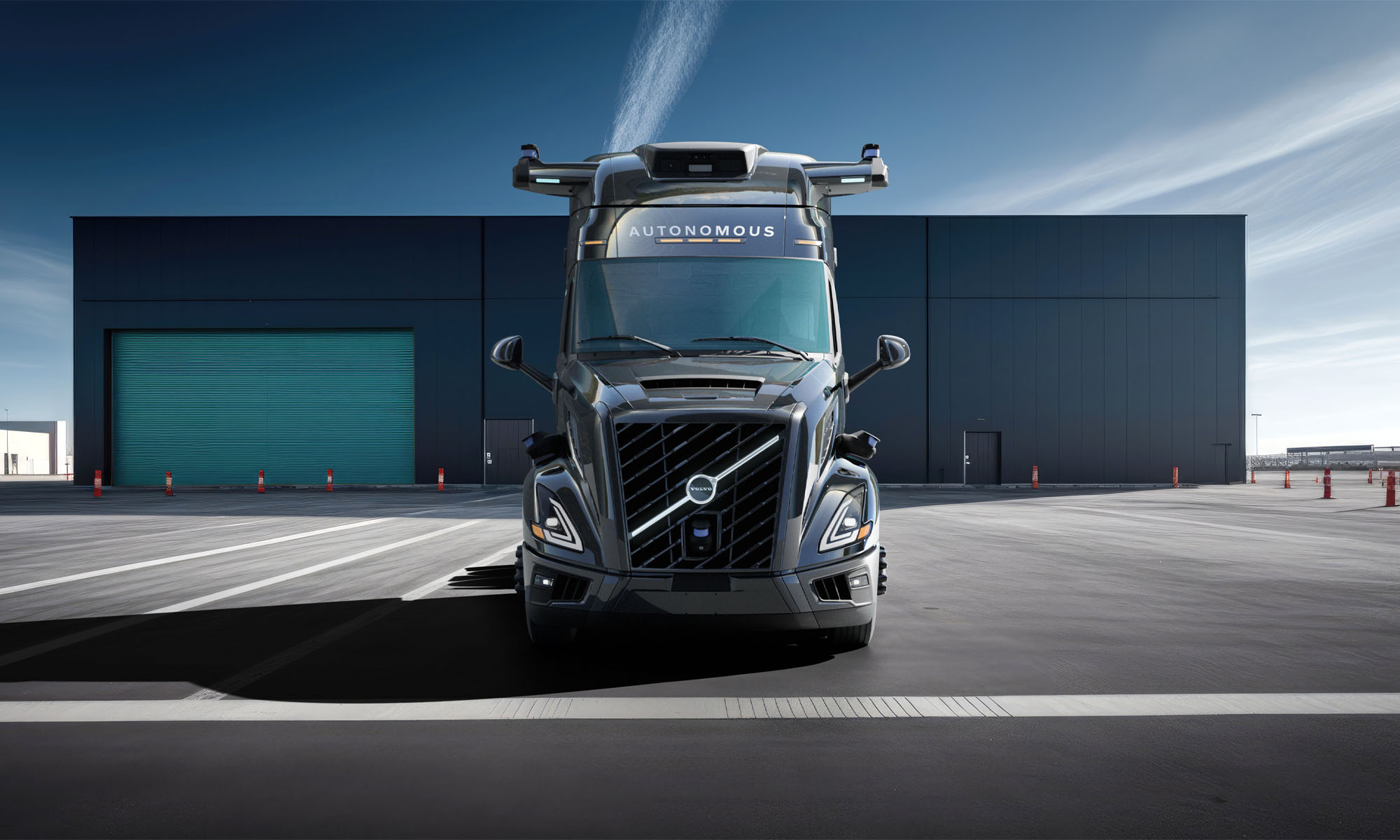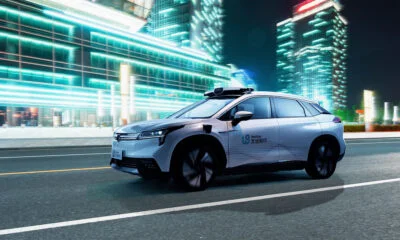News
Volvo And Aurora Announce Their First Self-Driving Truck
The new autonomous goods vehicle was revealed at the ACT Expo in Las Vegas.

Vehicle maker Volvo and self-driving specialist Aurora have revealed their first production truck with full autonomous capabilities, after first announcing a partnership three years ago. The companies showed off the product of their collaboration, known as the Volvo VNL Autonomous truck, at the ACT Expo in Las Vegas.
The truck, which will be manufactured by Volvo, uses Aurora’s self-driving platform, known as Aurora Driver. The system uses multiple high-resolution cameras, LiDAR sensors and imaging radars, and can detect objects up to 400 meters away.
Aurora’s platform has already been driven billions of miles in training simulations, and around 1.5 million miles on real public highways. As well as a wide range of imaging and sensing technologies, the truck will also feature redundant steering, braking, communication, computation, power management, energy storage and vehicle motion management systems, ensuring it can operate safely alongside other road users.
Also Read: NETGEAR’s Orbi 970 Routers Offer Powerful Wi-Fi 7 Connectivity
When the first 20 Aurora autonomous trucks make their debut in North America next month, they will still be overseen by human drivers until testing is complete. Aurora intends to deploy trucks between Dallas and Houston in the near future, but it’s unclear whether the fleet will consist of Volvo machinery or vehicles from another partner.
Volvo announced at the Las Vegas event that it has already begun manufacturing a test fleet of the VNL Autonomous trucks at its New River Valley factory in Virginia. Nils Jaeger, President of Volvo Autonomous Solutions, explained that the truck was the “first of [the company’s] standardized global autonomous technology platform,” and added that it would enable Volvo “to introduce additional models in the future”.
News
Samsung Smart Glasses Teased For January, Software Reveal Imminent
According to Korean sources, the new wearable will launch alongside the Galaxy S25, with the accompanying software platform unveiled this December.

Samsung appears poised to introduce its highly anticipated smart glasses in January 2025, alongside the launch of the Galaxy S25. According to sources in Korea, the company will first reveal the accompanying software platform later this month.
As per a report from Yonhap News, Samsung’s unveiling strategy for the smart glasses echoes its approach with the Galaxy Ring earlier this year. The January showcase won’t constitute a full product launch but will likely feature teaser visuals at the Galaxy S25 event. A more detailed rollout could follow in subsequent months.
Just in: Samsung is set to unveil a prototype of its augmented reality (AR) glasses, currently in development, during the Galaxy S25 Unpacked event early next year, likely in the form of videos or images.
Additionally, prior to revealing the prototype, Samsung plans to introduce…
— Jukanlosreve (@Jukanlosreve) December 3, 2024
The Galaxy Ring, for example, debuted in January via a short presentation during Samsung’s Unpacked event. The full product unveiling came later at MWC in February, and the final release followed in July. Samsung seems to be adopting a similar phased approach with its smart glasses, which are expected to hit the market in the third quarter of 2025.
A Collaborative Software Effort
Samsung’s partnership with Google has played a key role in developing the smart glasses’ software. This collaboration was first announced in February 2023, with the device set to run on an Android-based platform. In July, the companies reiterated their plans to deliver an extended reality (XR) platform by the end of the year. The software specifics for the XR device are expected to be unveiled before the end of December.
Reports suggest that the smart glasses will resemble Ray-Ban Meta smart glasses in functionality. They won’t include a display but will weigh approximately 50 grams, emphasizing a lightweight, user-friendly design.
Feature Set And Compatibility
The glasses are rumored to integrate Google’s Gemini technology, alongside features like gesture recognition and potential payment capabilities. Samsung aims to create a seamless user experience by integrating the glasses with its broader Galaxy ecosystem, starting with the Galaxy S25, slated for release on January 22.



























